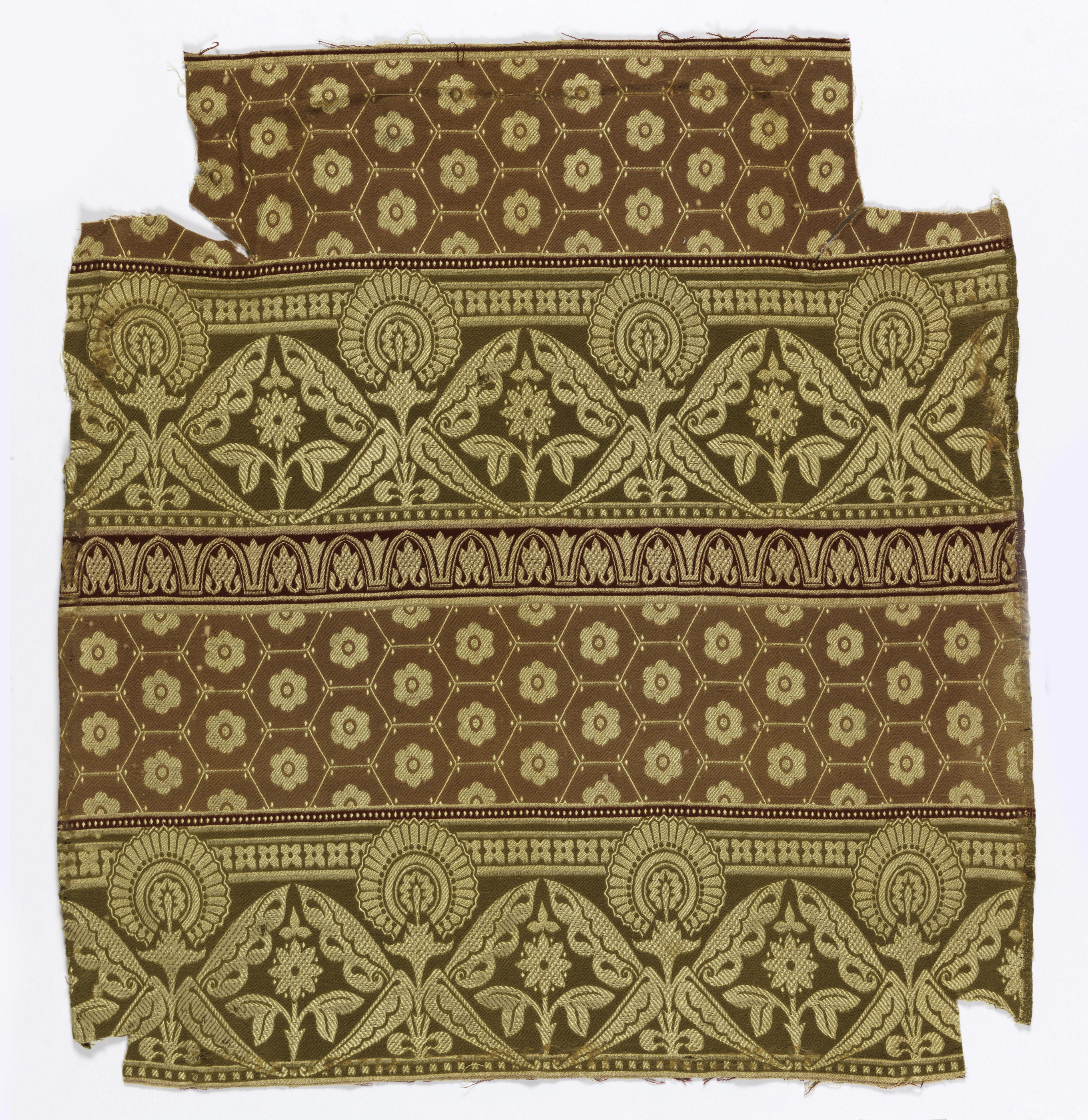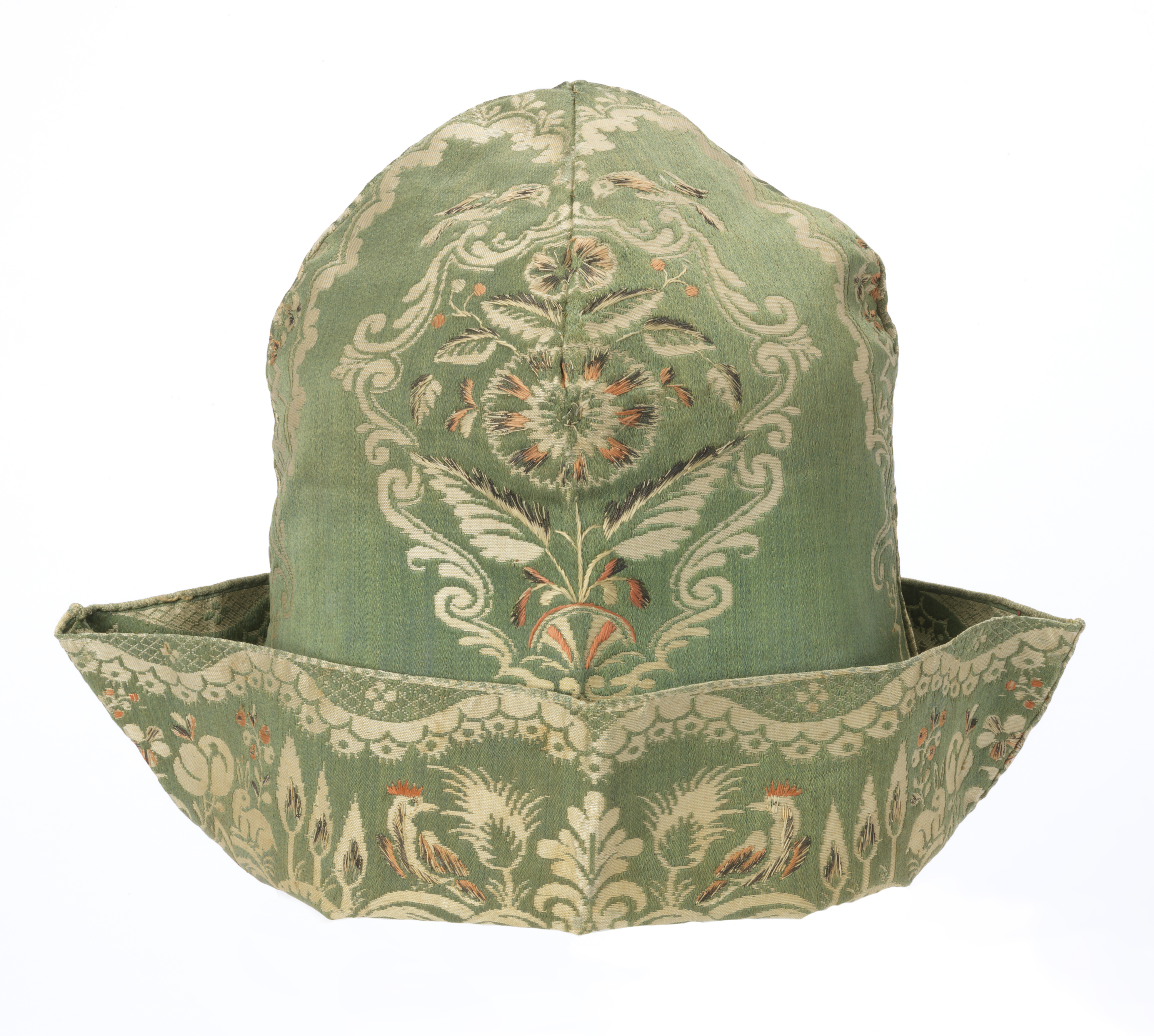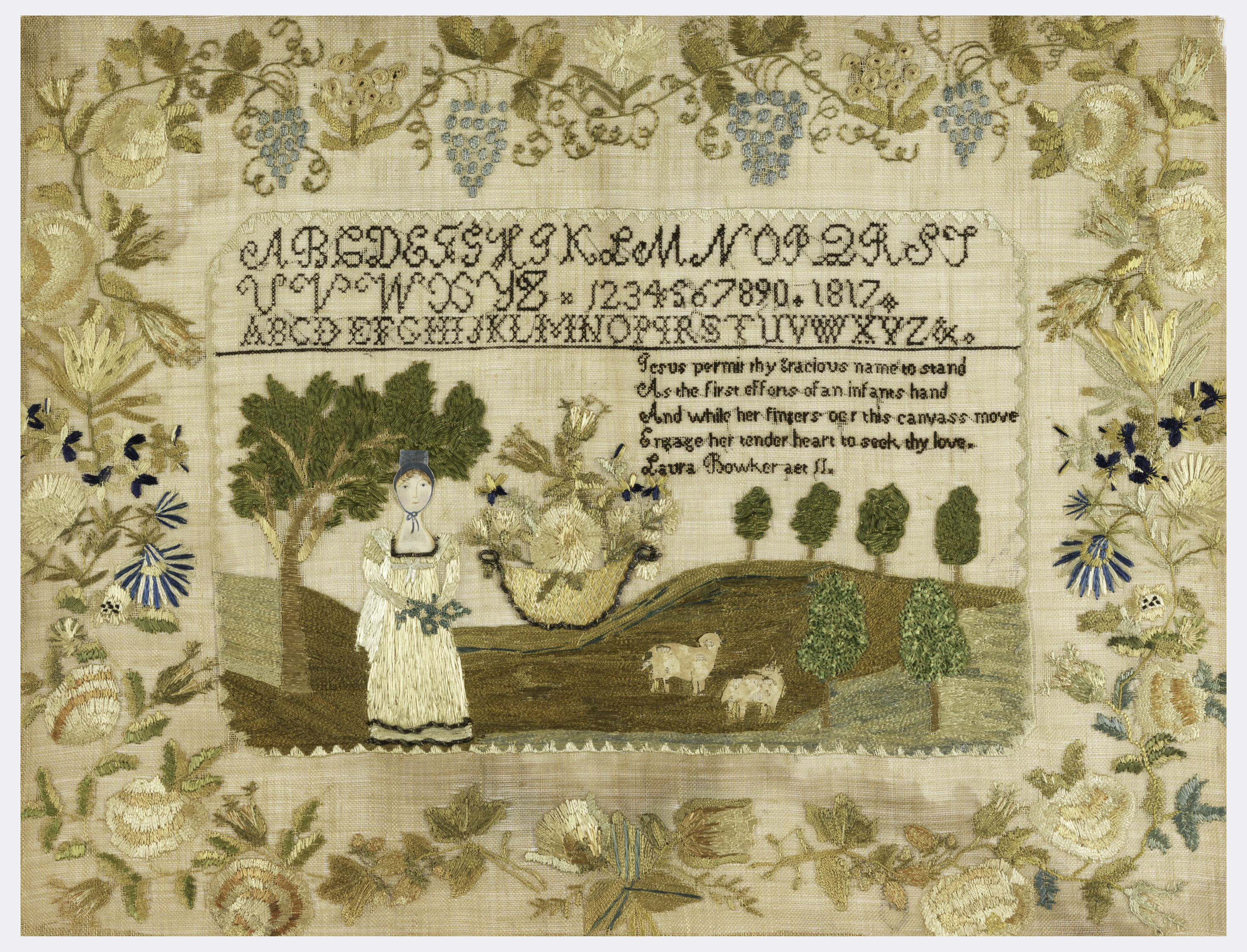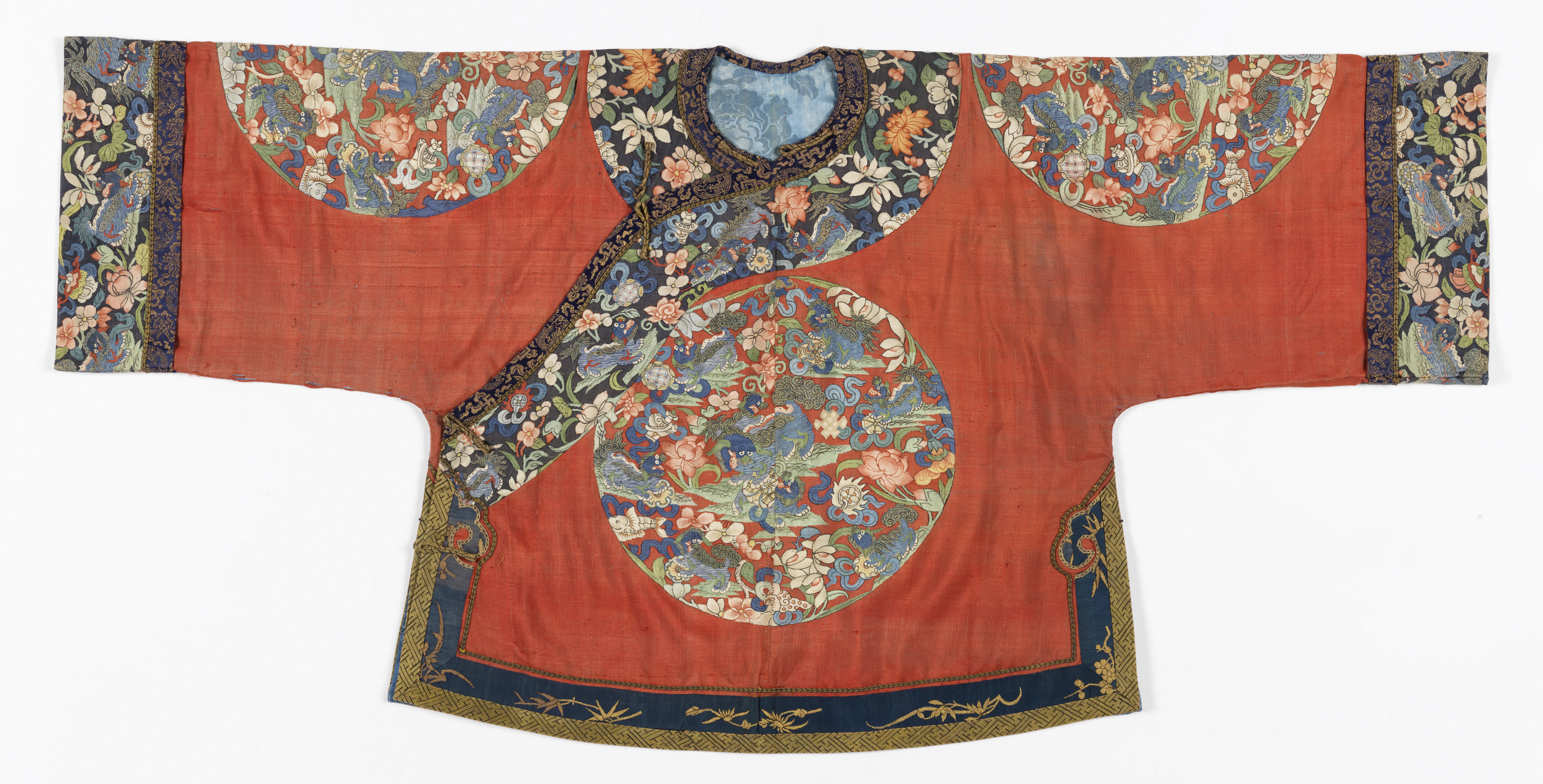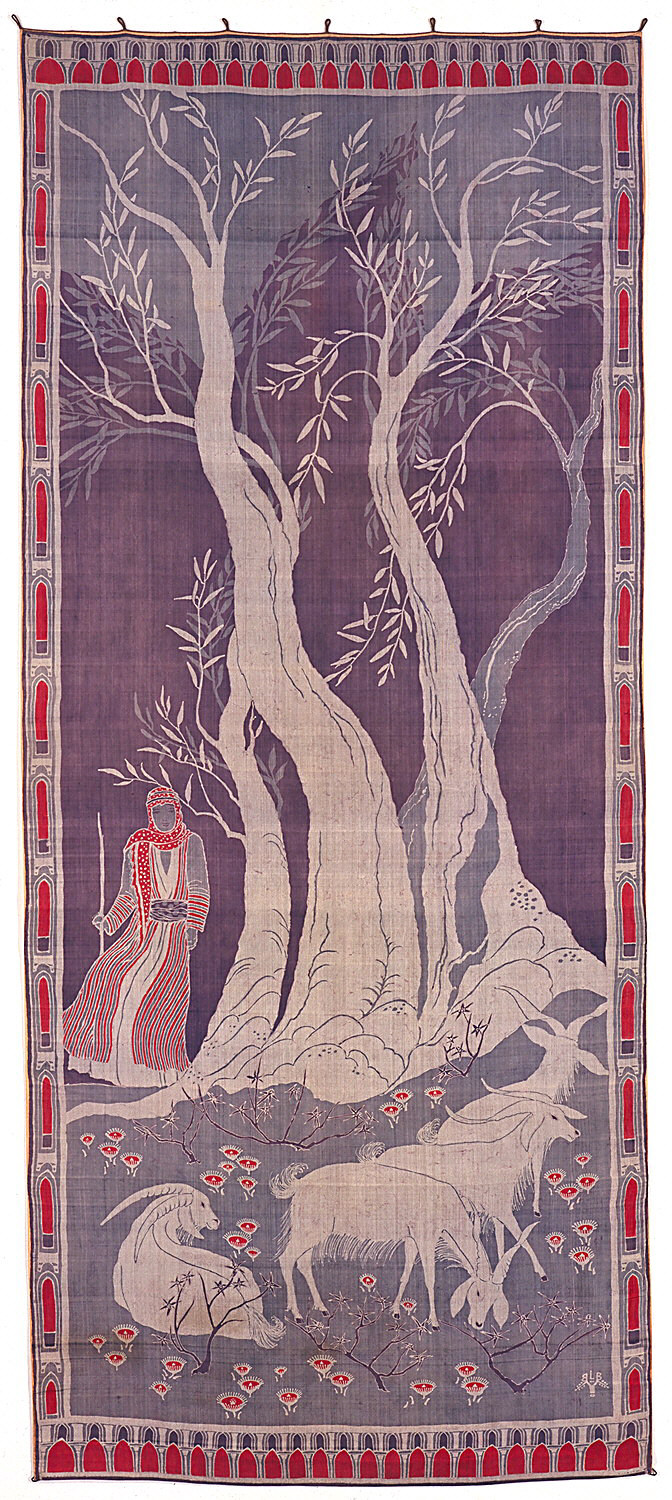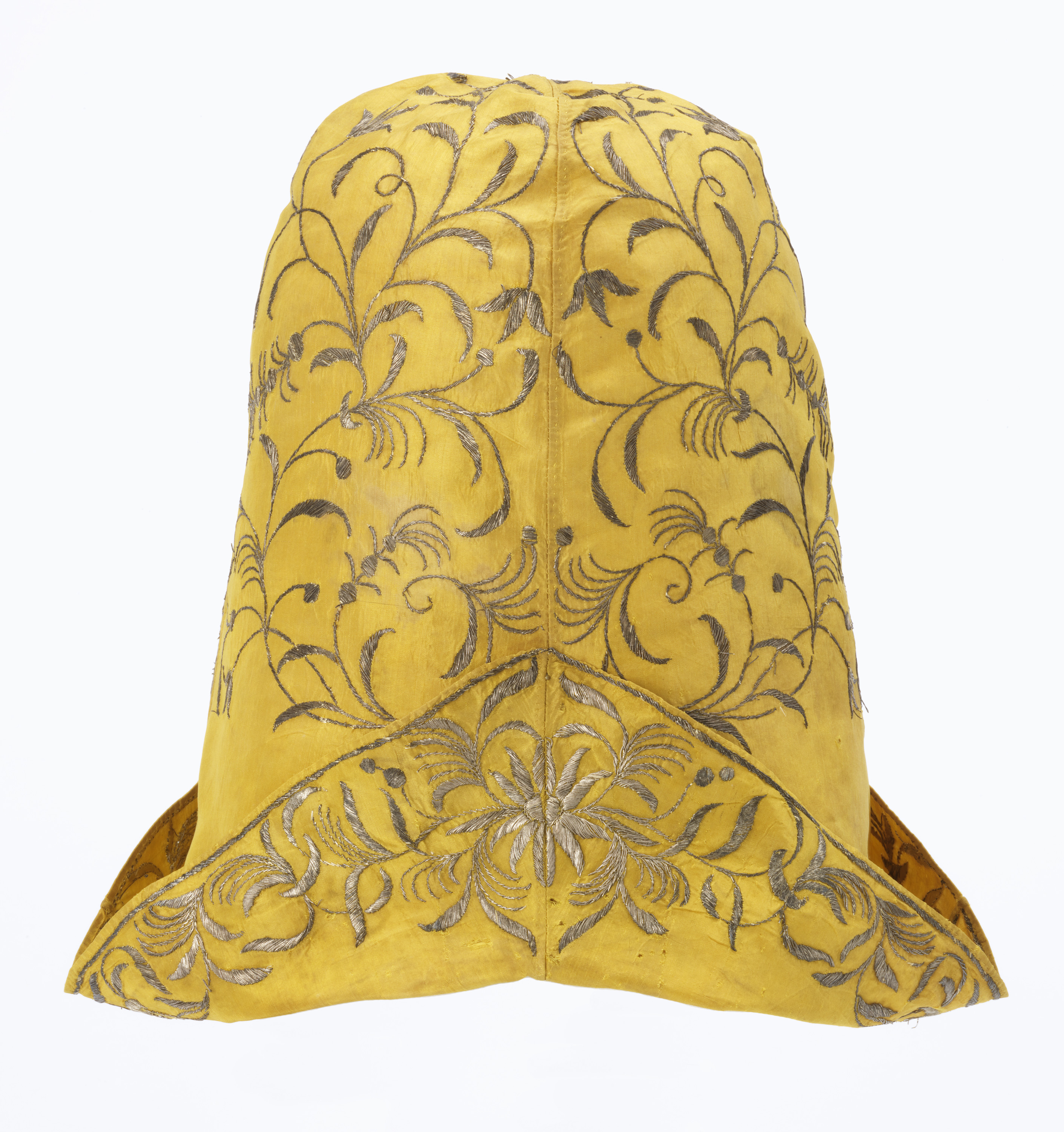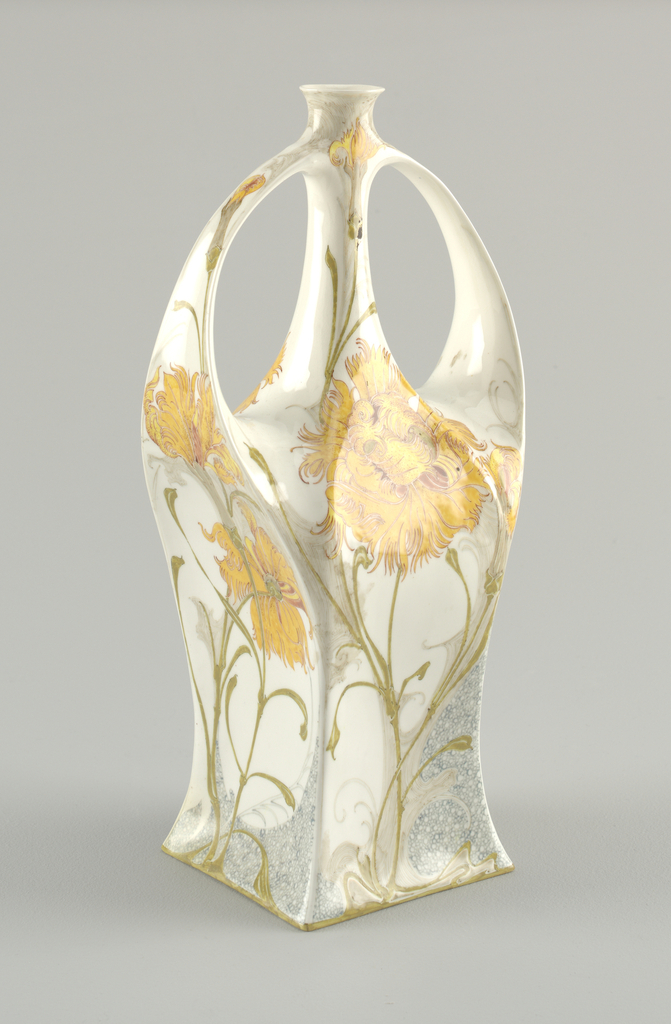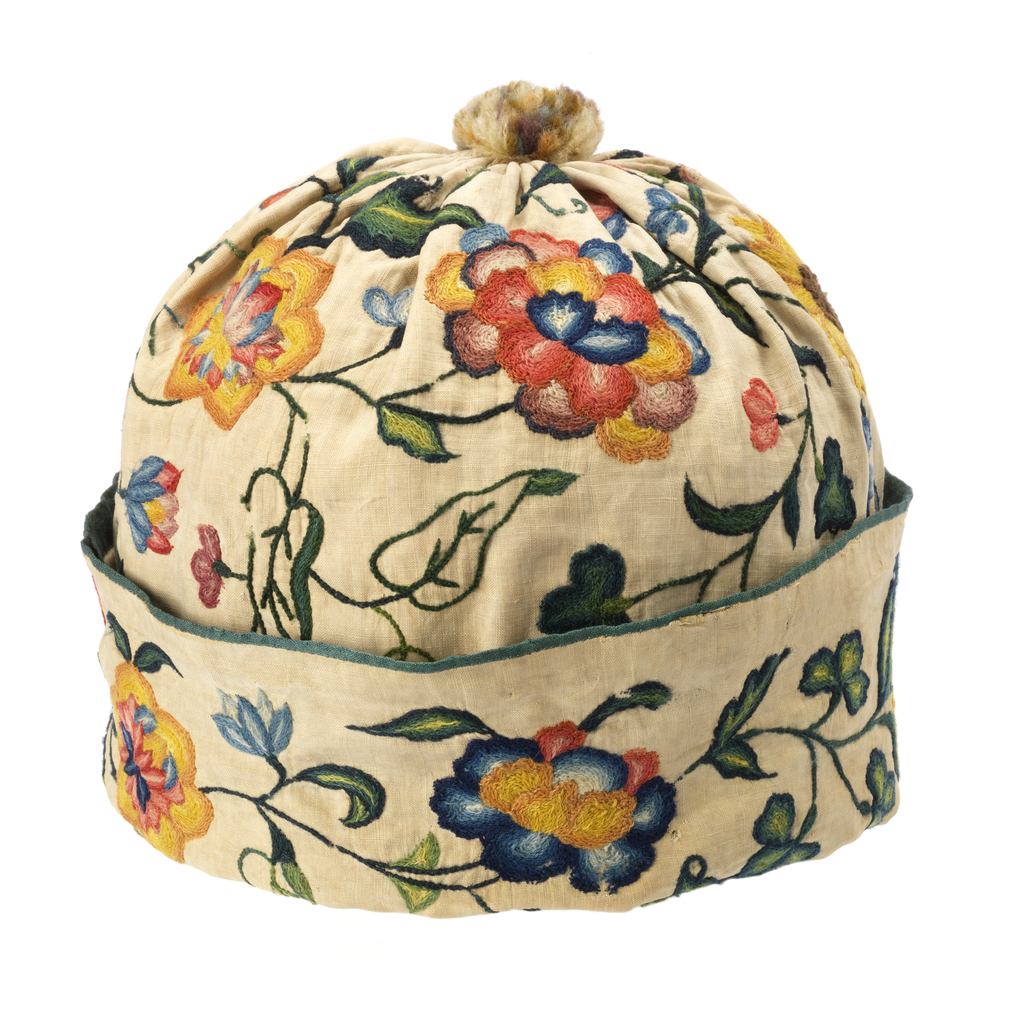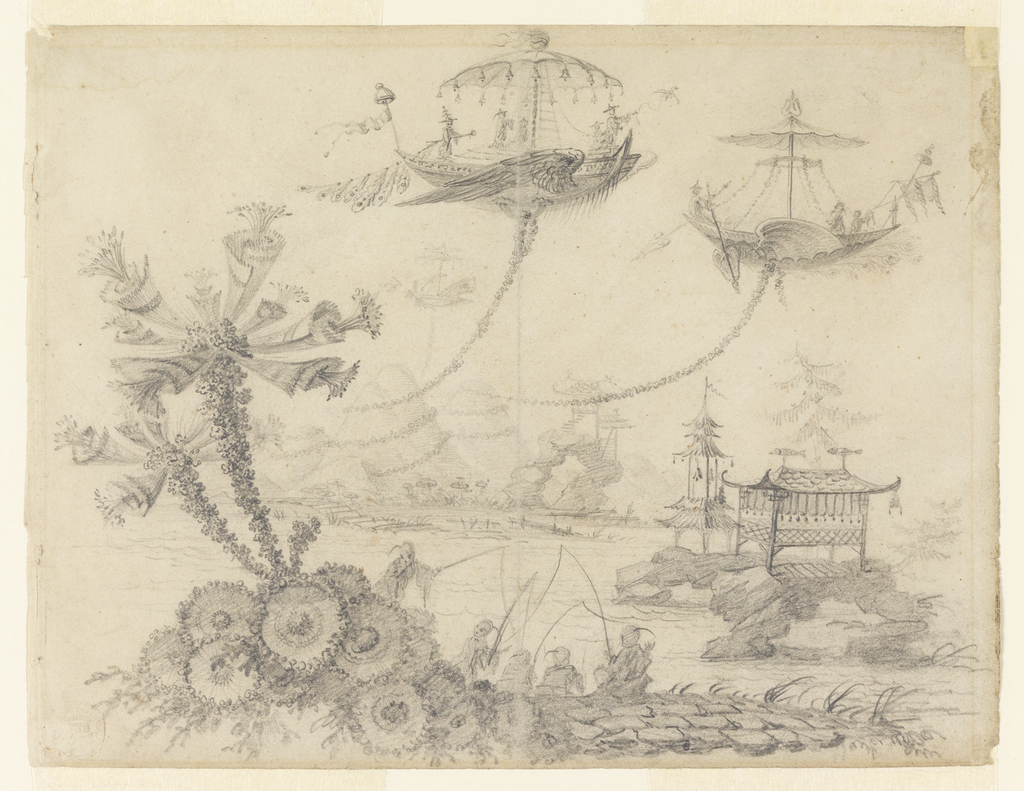Christopher Dresser, a disciple of Owen Jones, was an early design reformer and is considered by some to be the first industrial designer. In addition to designing wallpapers, textiles, carpets, ceramics, and metalwork for a wide variety of European and American manufacturers, he published several influential books, including The Art of Decorative Design (1862), Principles...
The intricate patterns on this cap precisely fit its shape, suggesting that the fabric was woven specifically for this purpose. Most likely produced professionally, the weaving, embroidery, and tailoring of caps such as this would have been completed in separate workshops. Wigs were common among men of many different social classes in eighteenth century France,...
This sampler, made by Laura Bowker (1805-1843), is part of a small group of pictorial samplers worked by girls from Fitzwilliam, New Hampshire. Each of the charming works features a woman standing in a pastoral setting with trees, rolling hills, a pair of lambs, and an oversized basket of flowers. These bonneted ladies hold bouquets...
The Qing imperial rulers (1644-1911) were of Manchu ethnicity, and ruled over a mostly Han population. For centuries, Manchu women were required to wear long one-piece robes and Han women two-piece outfits that included a jacket and skirt. Featuring elements of both traditions, this Manchu jacket demonstrates the increasing fusion of these fashions in the...
Batik, or resist-dye, is an ancient craft often associated with Indonesia, but practiced in regions throughout Africa and Asia. It became popular in United States in the 1910s and 20s, with artists such as Arthur Crisp, Pieter Mijer, and Lydia Bush-Brown attracting national attention. These artists worked in the traditional manner, painting paraffin and beeswax...
This 18th-century hat is called a nightcap, but it probably was not worn to bed. A man would use this cap to keep his head warm when he removed his wig, since a wig required short hair or a shaved head. A wig was proper attire for men of almost any status in 18th century...
Like a ballerina in a pirouette, this delicate vase stands with its handles raised and reaching for each other, like graceful, slender arms. The vase’s sculptural, elongated, and organic form epitomizes Art Nouveau. It is also one for which the Netherlandish Rozenburg Pottery and Porcelain Factory was particularly well known. Rozenburg produced these works of...
This nightcap, dating from the late 17th or early 18th century, was made using a technique called crewel, a type of embroidery worked with wool yarn on linen. Since men had shaved heads or very short hair to accommodate their wigs during this period, they wore caps like this one to keep warm after their...
Ships, precariously tethered to mountain tops by garlands, hover over a landscape of pure fantasy in this graphite drawing by the French artist Jean-Baptiste Pillement (1728-1808). Pillement was known for his imaginative prints featuring chinoiserie designs that were in essence European variants of Japanese and Chinese motifs. Pillement was a prolific artist who operated in...
